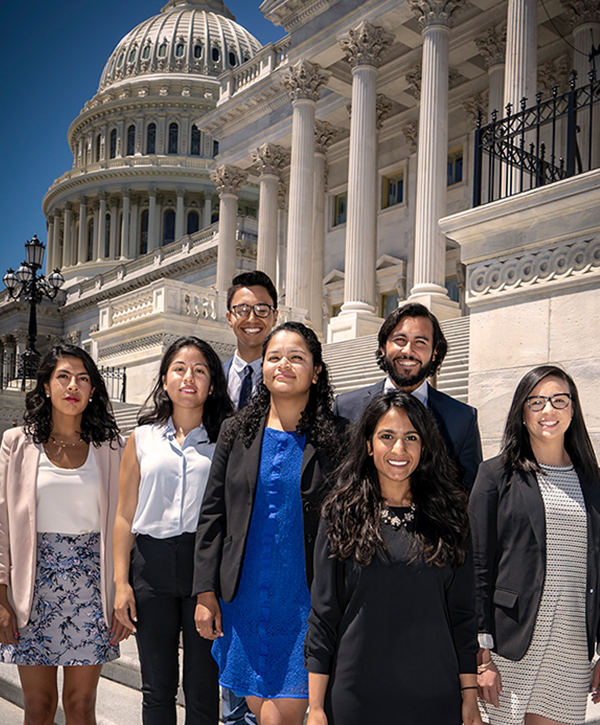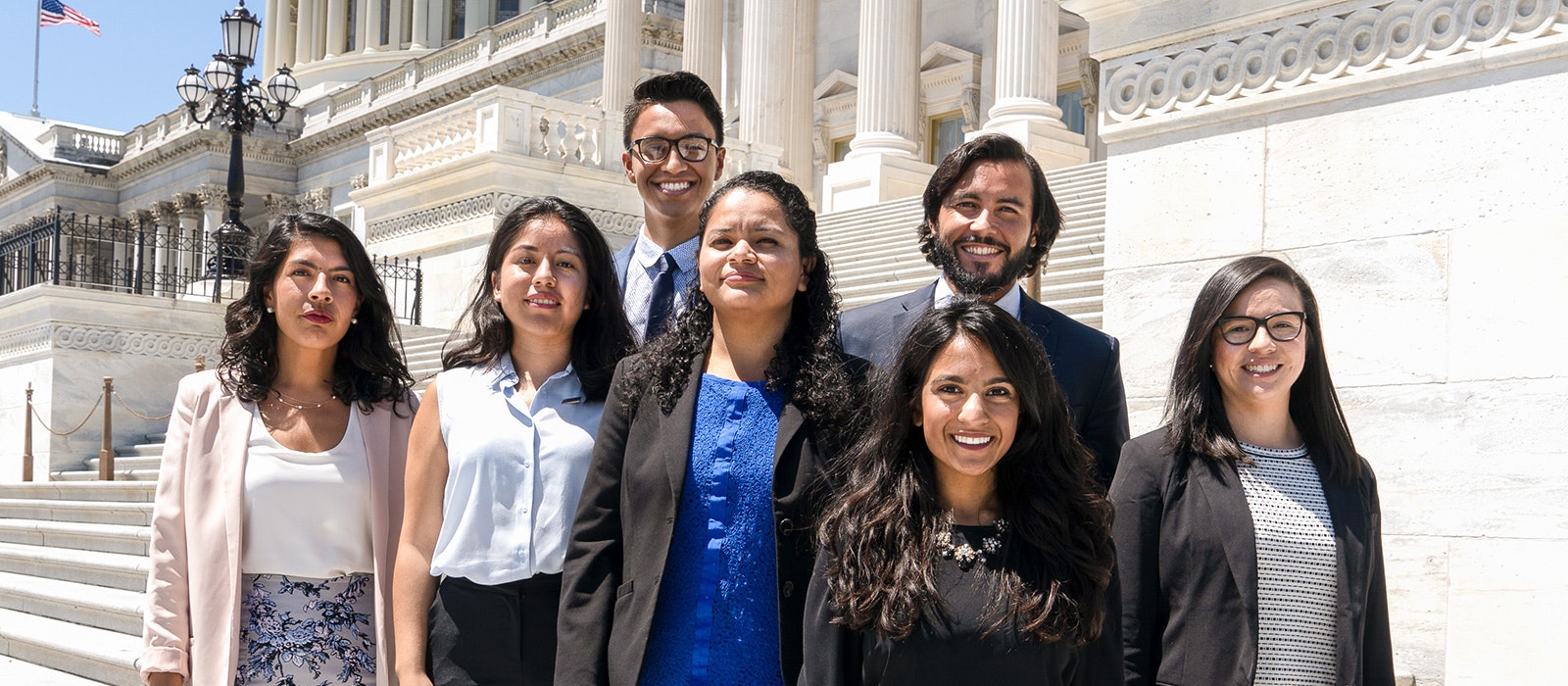Temporary Protected Status (TPS) holders have been living and working in the United States for decades: building their families, and contributing to their communities and our nation’s economy.
However, as the Trump Administration announced the termination of TPS designations for six countries1, a mere extension for four countries, and a phase-out of Deferred Enforcement Departure or DED for one2, the lives of these individuals have been thrown into chaos. Without action from Congress, these individuals could be thrust back into danger and disarray, facing a future that is uncertain and even deadly. Ending TPS protections for these hundreds of thousands of people without providing them a form of alternative relief is a dangerous and unnecessary action that will have devastating consequences on American communities and the U.S. economy.


437,000 Individuals with TPS are currently living in the United States.Congressional Research Service
What the TPS Program is and What it Does
Temporary Protected Status, or TPS, is a form of humanitarian relief established by Congress as part of the Immigration Act of 1990. The life-saving program grants legal status – including work authorization and protection from deportation – to people from designated countries facing ongoing armed conflict, environmental disaster, or other extraordinary conditions preventing their safe return. It does not provide a separate path to lawful permanent status or citizenship.
270,000Center for American Progress
Number of U.S.born citizen children who have parents that are TPS holders.
- TPS designations are determined by the Department of Homeland Security (DHS), in consultation with the Department of State. Under U.S. law, TPS may be granted for up to 18 months at a time and extensions may be granted as many times as necessary.
- DHS may redesignate a country for TPS, which allows the United States to provide protections to nationals of the redesignated country who sought safety in the U.S. after the country’s last designation.
- Prior to the Trump Administration, previous administrations redesignated many of the protected countries, recognizing dangerous conditions continued.
- Conditions in TPS-designated countries remain dangerously unsettled, and the U.S. State Department warns Americans against traveling to these nations. In fact, the majority of countries currently granted TPS – most of which are set to expire imminently – have received level 3 and 4 travel advisory warnings from the U.S. Department of State. Level 4 is the highest possible travel warning.
“Current conditions in these countries may include violent crime, terrorism, gender- and sexual orientation- based violence, rape, torture, drought, civil war, and state-sanctioned executions.”
TPS Has Strict Criteria For Those Eligible
Once DHS designates a country with TPS, a national who meets certain eligibility requirements must register within a limited period of time to be granted protection.
TPS holders face strict eligibility requirements, including limited registration windows, cutoff dates, background and security checks – resulting in a limited population of individuals who can receive protections.
Additionally, in order to maintain TPS protections when a country's designation has been extended current holders must re-register and pay a significant filing fee for work authorization.
TPS holders cannot confer their TPS immigration status to family members abroad, regardless of the crises they may face. In addition, they cannot access most federal public benefits.
19 yearsCenter for American Progress
Average number of years TPS holders from El Salvador, Honduras, and Haiti – 90% of the current TPS population – have lived in the U.S.
TPS Holders Are Thriving in the U.S. While Their Home Countries Are Engulfed in War, Devastation, Hunger, and Chaos 3
- TPS holders have established deep roots in the U.S., and many have been here for decades. They are an integral part of communities across the U.S., as well as the U.S. economy.
- TPS holders have 270,000 U.S.-born citizen children, own homes and pay taxes, and contribute every day to American communities.
- All 50 states are home to TPS holders with the largest populations living in California, Texas, Florida, New York, Virginia, Maryland, Massachusetts and New Jersey.
Over 80%Center for Migration Studies
Labor force participation rates for TPS holders
TPS Holders Drive Key Sectors of the American Economy, and Removing Them From the Workforce Would be Disastrous
TPS holders have labor force participation rates over 80% and help drive crucial economic industries such as child care, education, restaurant and other food services, healthcare, construction, landscaping, and grocery store sectors. TPS communities are vital to the U.S. economy, paying $4.6 billion in federal, state and local taxes. Removing hundreds of thousands of these individuals from the U.S. workforce would harm the American economy.
Sources
Congress.Gov, Congressional Research Service, Center for American Progress, Catholic Legal Immigration Network Inc., United States Department of State, United States Citizenship and Immigration Services, Center For Migration Studies, USC Dornsife, Immigrant Legal Resource Center
- As of January 2019, the Trump Administration had announced terminations of TPS designations for 6 countries. Due to ongoing litigation, protections for Sudan, Nicaragua, Haiti and El Salvador were extended, while Nepal’s designation will terminate on June 24, 2019, and Honduras’s is set to expire on January 5, 2020.
- Deferred Enforced Departure or DED is a similar form of relief providing foreign nationals deportation protections and work authorization. While TPS designations are granted to a country by the Department of Homeland Security (DHS), DED is granted through the President's foreign relations power. On March 27, 2018, President Trump directed DHS to phase-out DED for Liberian nationals over a 12-month period until March 31, 2019.
- Internal assessment memos from career employees at DHS and the State Department demonstrated that conditions in TPS designated countries remain very dangerous. Unfortunately these assessments were overridden by the Trump Administration.
Tell the world; share this article via...
Read related articles:
Get Involved
We need your help to move America forward. Learn what you can do.